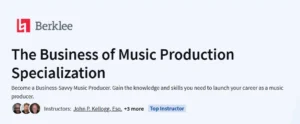What you will learn in Introduction to Classical Music Course
Understanding Music: Explore the fundamental elements of music, including pitch, duration, and sound color, to better appreciate how music works.
Emotional Impact: Learn why music evokes emotions and how it influences our feelings and perceptions.
Musical Syntax: Understand the structure and syntax of Western music, and how these elements contribute to musical expression.
Historical Context: Gain insights into the historical development of Western classical music, from the Middle Ages to the present.
Key Composers and Works: Study masterpieces by composers such as Bach, Mozart, Beethoven, Wagner, and Puccini to understand their contributions to the classical music tradition.
Program Overview
What Is Music?
⏳ 3 hours
Focus: Introduction to the fundamental elements of music and their emotional impact.
Content: Includes videos, readings, and assignments exploring the basics of music theory and appreciation.
How Music Works, It’s Magic
⏳ 7 hours
Focus: In-depth exploration of musical elements such as rhythm, melody, harmony, and texture.
Content: Features videos and assignments analyzing how these elements create musical expression.
The Sound of Music
⏳ 5 hours
Focus: Examination of musical instruments, orchestration, and the role of different instrument families in creating musical textures.
Content: Includes videos and assignments discussing the characteristics and roles of various instruments.
Music Back in the Day
⏳ 5 hours
Focus: Study of the evolution of Western music from the Middle Ages through the Renaissance and early Baroque periods.
Content: Features videos and assignments exploring historical developments in music.
The Baroque Era
⏳ 8 hours
Focus: Analysis of Baroque music, focusing on composers like Bach and Handel, and the development of musical forms such as the fugue.
Content: Includes videos and assignments examining the characteristics of Baroque music.
The Classical Period
⏳ 6 hours
Focus: Study of the Classical period in music, highlighting composers like Mozart and Haydn, and the development of symphonic and operatic forms.
Content: Features videos and assignments analyzing the evolution of musical styles during this period.
The Romantic Period
⏳ 6 hours
Focus: Exploration of Romantic music, focusing on composers like Beethoven and Tchaikovsky, and the expansion of musical expression.
Content: Includes videos and assignments discussing the characteristics of Romantic music.
The 20th Century and Beyond
⏳ 6 hours
Focus: Examination of 20th-century music, including developments in modernism, minimalism, and contemporary styles.
Content: Features videos and assignments exploring the diversity of musical trends in the 20th century.
Conclusion and Final Assessment
⏳ 5 hours
Focus: Review of key concepts and composers studied throughout the course.
Content: Includes a final assessment to evaluate understanding of course material.
Get certificate
Job Outlook
- Education: Teaching positions in music appreciation, history, or theory.
- Arts Administration: Roles in managing orchestras, music festivals, or cultural institutions.
- Media and Communications: Positions in music journalism, broadcasting, or content creation.
- Event Planning: Organizing classical music performances, concerts, or educational programs.
Specification: Introduction to Classical Music
|
FAQs
- No prior music training is required.
- Suitable for beginners, music enthusiasts, and students.
- Introduces fundamental concepts like melody, harmony, rhythm, and musical forms.
- Encourages listening and analysis to develop appreciation and understanding.
- Covers composers such as Bach, Mozart, Beethoven, and others.
- Discusses their stylistic periods, influences, and signature works.
- Provides listening guides to enhance recognition and appreciation.
- Explains historical and cultural contexts of major compositions.
- Emphasizes listening and analysis over performance.
- Teaches how to identify musical elements like motifs, dynamics, and phrasing.
- Helps learners interpret compositions and recognize patterns.
- Supports development of informed appreciation for classical music.
- Introduces musical periods from Baroque to 20th-century styles.
- Explains differences in form, orchestration, and expressive techniques.
- Provides examples to illustrate stylistic evolution.
- Enhances appreciation for historical context and artistic development.
- Builds foundational knowledge useful for musicians, educators, and researchers.
- Enhances analytical and listening skills applicable in performance and teaching.
- Provides historical and contextual understanding for music study or critique.
- Serves as a starting point for advanced music courses or professional development.





